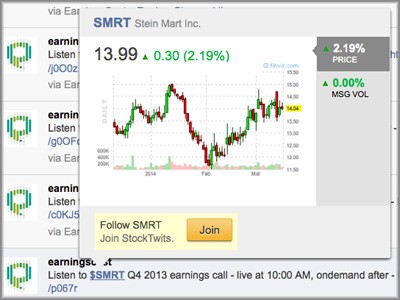In a previous post, I discussed how to respond to the scalding of being scooped. Let’s turn it around. Where do you find your own scoops?
If you’re among the anointed that went to an Ivy League school and ended up at a globally prestigious news organization (you know who you are), many of the scoops will seek you out. This isn’t to diminish the accomplishments of these journalists, but the reality is that the Wall Street playerz would rather break their merger in, say, the Wall Street Journal than the local newspaper where their handiwork will cost hundreds of jobs. Also, these reporters are in the world’s financial centers.
That doesn’t let the rest of us off the hook.
Scoops grow organically out of experience, time on a beat, investment by management in sending a reporter to top industry gatherings and the street smarts of working sources and working the phones. Nothing can replace getting out of the newsroom and talking to people.
“Anything that drifts outside
the expected is a thread
that might lead to an exclusive. “
But here are a few ways to get into the zone where scoops can be scooped up.
1. Pay attention to deviations.
Share prices, revenue and earnings are obvious — everyone will get those. But look at other metrics and track them over time. If it’s a retailer, have same-store sales changed radically? For any company, how about return on equity and return on investment?
Don’t just compare the company against itself but its peers. How about employment changes? Anything that drifts outside the expected is a thread that might lead to an exclusive.
Obviously this requires a deep dive into numbers, but don’t stop there. Look for what is out of place, unusual. I remember a banking reporter who would check the executive garage at headquarters on weekends (the private jet hangar was off limits). If it was full of pricey cars, a deal was probably in the works.
2. Challenge the conventional wisdom.
It is often wrong (e.g., the lead-up to the financial panic and Great Recession, when most experts said the subprime trouble was no big deal). This means probing every assumption and talking to a variety of sources. What is missing? What have the standard narratives missed? What could go wrong? Or, if it is a troubled company, is something being overlooked that could bring a turnaround. Scoop.
One common trope today is that housing has recovered, returned to normal, or at least a salubrious new normal. This could not be more wrong.
3. Listen carefully to the earnings call and re-read the transcript.
Gems and landmines can be hidden in asides, arcane answers to analysts’ questions, or even a missing executive who is usually there.
4. Think like a tabloid.
Back in the 20th century, I would coach reporters to act like the tabs on the Amy Fisher/Joey Buttafuoco scandal. The point was not to sell sex (although that might benefit business news in the Great American Freak Show), but to never let up. During the height of the frenzy, news organizations worked furiously to advance the story if by only a millimeter.
On earnings calls: “Gems and landmines
can be hidden in asides,
arcane answers to analysts’ questions,
or even a missing executive
who is usually there. “
The lesson for our craft is not to be satisfied with reprinting the initial scoop and then playing catchup. Find a way to get ahead: The new angle, the person who is critical to the story but has avoided scrutiny, what everybody else is missing (reader emails and comments can be useful here), the 30,000-foot view of what this means for an industry or community, or boots-on-the-ground with employees. Never let up.
5. Follow up.
Executives make promises and set goals. Factories that received taxpayer incentives close and lawmakers promise to get the money back. A big shake-up happens at an important but little-covered company. Regulators approve the construction of a new mine in an ecologically sensitive area. All this and more is reported and rarely followed up. Get in the morgue and pick something. How it turned out may well be your next Page One story.
6. Think about domino effects.
The most common is that a merger puts other companies in that sector into play. But the world economy is so interconnected that it’s hard for one event not to become the flapping of butterfly wings that leads to a tornado on your beat. What does China and its economic fragility have to do with your city? Plenty. Pay attention.
7. Study the leaders.
An annual Q&A with the chief executives of your touchstone companies should be mandatory. If that doesn’t provide a scoop and follow-ups, you are asking the wrong questions. But pay attention to the top executives and board members: Backgrounds, ages, interconnected board relationships, etc. If a bunch have a history with a potential acquirer, that’s interesting. If the CEO is 64 and she doesn’t have a succession in place, I’d read that story.
8. Dive into SEC filings.
You will find remarkable things, especially in footnotes and the fine print. Among them: Lawsuits, unfunded pensions, preparations of offshore or automate segments and those wonderful auditor phrases about not being able to verify that these earnings are real.
What are your tools for finding scoops? Help your fellow toilers and leave them in the comments section.











